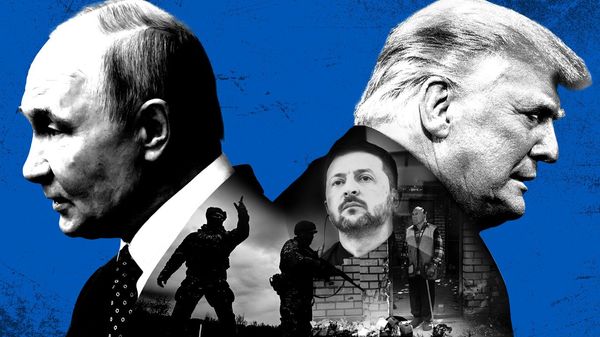Two of what threatened to be huge oil market shake-ups in a year of seismic industry change took a back seat Monday, as more inflation data drove oil prices lower. Meanwhile, OPEC+ decided to hold steady its quota cut from October, as the Europe Union launched the final stage of its embargo on Russian crude.
On Sunday, the Organization of the Petroleum Exporting Countries and its allies, including Russia, surprised analysts by agreeing to leave oil production targets intact. The group had startled markets by announcing a two million barrel-per-day cut in early October, projecting a slowdown in global demand.
On Monday, the EU imposed the next step of its ban on purchases of Russian oil, forcing Netherlands, Italy, Bulgaria and Croatia — the last EU buyers of Russian oil — too go elsewhere for their crude.
"The flows have stopped, but they've simply been redirected," said Matt Smith, lead oil analyst for the Americas at Kpler. India is picking up a large piece of the redirected Russian oil, Smith said, in what amounts to a pivot that's remapping global oil trade routes.
Oil Markets Make Moves Monday
On Monday, oil markets rallied early on news that China was easing further from its strict zero-Covid policy. U.S. crude then reversed and fell 3.8% to settle below $77 per barrel. Brent crude prices also dropped around 3% to below $83. The reversal came after U.S. service sector data raised worries that the Federal Reserve's aggressive interest rate hikes could continue.
Meanwhile, U.S. natural gas also dropped hard, falling more than 10% Monday. This came on data showing increased supply and expectations of mild weather across the U.S. over the next two weeks. Data also showed Europe's natural gas demand was also down 24% in November compared to its five-year average for the month.
Oil Markets: OPEC+'s Decision
The decision by OPEC and its allies Sunday to maintain its current quota policy seems to signal the cartel believes it already made the correct call on oil demand when it met in October. OPEC+ has scheduled its next meeting for June.
Smith, of Kpler, said in an interview this suggests the oil cartel plans to keep the 2 million barrel per day cut in place for the next six months.
Smith said if crude oil prices begin to gravitate back toward $90 per barrel, then the group was "justified in not doing anything."
However, he added that if prices continue to maintain a level around $75-$80 per barrel, OPEC+ may look to reconvene to make additional cuts.
"Our belief is that the likely impact of interest rate hikes and the ongoing situation with China is just going to weigh on the market so much that prices are going to remain anchored in this $80-$90 region," Smith said.
Ann-Louise Hittle, head of macro oils at Wood Mackenzie, said Sunday "given the uncertainty in the market," the OPEC+ decision was not a surprise.
"The producers' group faces downside risk from the potential for weakening global economic growth and China's zero-Covid policy," Hittle said.
Oil Markets: The EU Embargo And Price Cap
ING Group analysts Warren Patterson and Ewa Manthey wrote Monday the EU's decision to place the cap above what Russia is receiving for its Urals crude "calls into question how effective the cap will be at the moment."
Third Bridge analyst Peter McNally told IBD that neither the EU embargo nor the $60 price cap on Russian crude is likely to cut down sales.
"The cap is important if it causes Russian physical supply to come off the market," McNally said. Russia is already realizing $55-$60 for sales to China and India, according to McNally.
However, he added if Brent prices approach $100 per barrel, it could incentivize Russia to withdraw crude from the oil market.
"There is one very important consideration in the oil market: inventories are still low," McNally said. "A physical disruption in supply or a meaningful uptick in demand could send inventories that are low to critically low."
Russia Begins Discounting Displaced Barrels
Russian crude prices slumped 8% to under $64 Monday as the embargo deepened. A relatively small amount of oil-related products still flow to some EU countries via rail and pipelines. But Monday's deadline halts all seaborne oil sales. The ban expands to cover the remainder of Russian oil-related goods on Feb. 5.
Pakistan's Minister of State for Petroleum confirmed Monday that Russia had agreed to provide discounted crude oil, gasoline and diesel to Pakistan, according to news service oilprice.com. China and India had not agreed to the EU's price cap. But the EU embargo makes the pair Russia's top oil customers. Both were already demanding steep discounts according to oil price.com.
In addition, Chinese authorities said Monday they would cut gasoline and diesel prices by 440 yuan, about $62.51, per ton and 425 yuan, $61, per ton, respectively, due to forecast decrease in demand. The cuts were set to take effect starting Tuesday.
It will become clear where that Russian oil is going, Smith said, in "the days and weeks ahead."
EU countries are probably looking to a combination of sources. Flows from the U.S., Latin America and Middle East have already increased significantly.
"The EU embargo is unlikely to have an impact on oil markets by itself," McNally said. "The plan had been telegraphed for months and buyers found alternative sources of supply. It was not an overnight decision that was enacted immediately."
Please follow Kit Norton on Twitter @KitNorton for more coverage.







